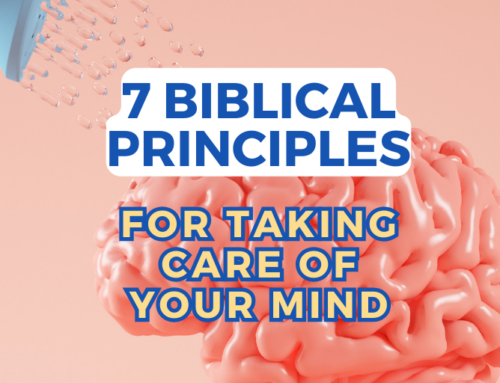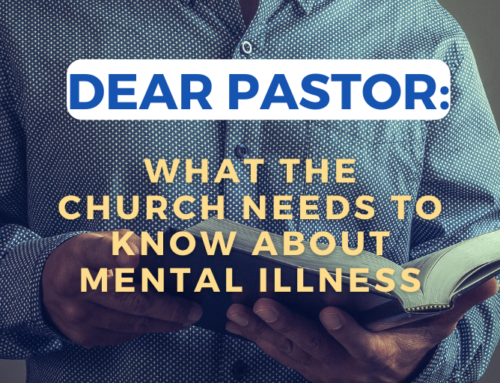Recently I’ve been sharing my story in a variety of places that reach people interested in faith and mental health. I’ve gotten a wide ranges of responses and I’m delighted for this. I want to share one with you that I found very thought provoking.
Hi Tony, am appreciating your posts on FaithNet but how come you’re promoting brain illness instead of focusing on nervous system dysregulation and recovery? Things like the importance of restorative sleep and techniques to calm our nervous system?
My short answer is borrowed from a quote of Jesus in Mark 2.17a —
It is not the healthy who need a doctor, but the sick.
May is known as mental health awareness month and, from one perspective, this is unfortunate. While it is true that the mental health needs of many need to be addressed, it seems lately we have tipped the scale to favor those who have diagnoses that are more readily treated. We have chosen to spend the vast reserves of our time, money, and attention on the masses who are, comparatively functioning well. Meanwhile, the fewer but more chronically ill population, most of whom can’t function well enough to advocate for themselves, waste away on the streets, in jails, or in prison.
I have a close friend I’ll call Steve, who is in his 70s. He has a diagnosis of schizoaffective disorder, one of the more debilitating mental illnesses in the book. Steve’s mother ran into so many brick walls getting care for Steve that she felt like giving up and putting him permanently in a state hospital. For his own health and safety, she did have to seek out long term care on more than one occasion. Once when he threaten to kill her, she had to take him to court. He was ordered to take his medications or be confined. Steve now tells people that was one of the best things that ever happened to him.
Steve now lives on his own. He is on the board of his apartment complex. He is a member of NAMI. And he’s a regular at our faith-based mental health support group. Steve is starting to become concerned about his functioning as he ages. Will someone care for him?
When I think of mental health, I think of Steve. The stigma I face is so minuscule compared to the discrimination he faces if we don’t spend more of our time, attention, and money, on the care of persons with serious brain diseases like Steve’s. Money to shatter stigma needs to be funneled towards research, education, and support.
At the same time I realize human beings have a built-in nature to flock to what is flashy. I saw a Simone Biles ad for a brain illness research project and I sat up a little straighter. I am grateful people who struggle with mental health are getting help and telling others about it. I hope their work in advocacy results in better care for all.







